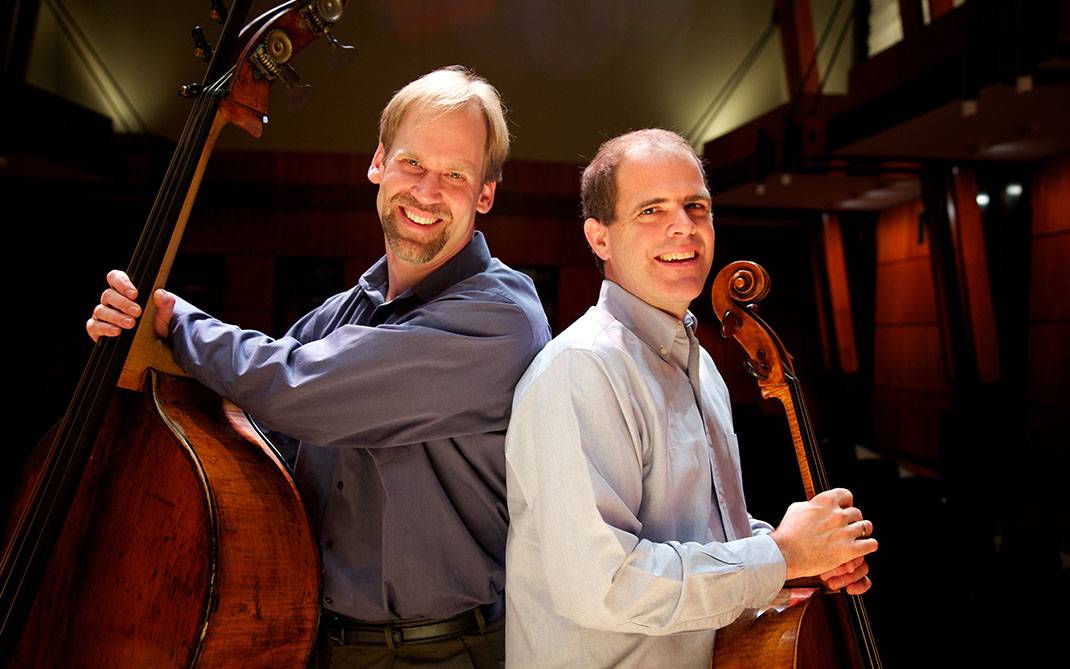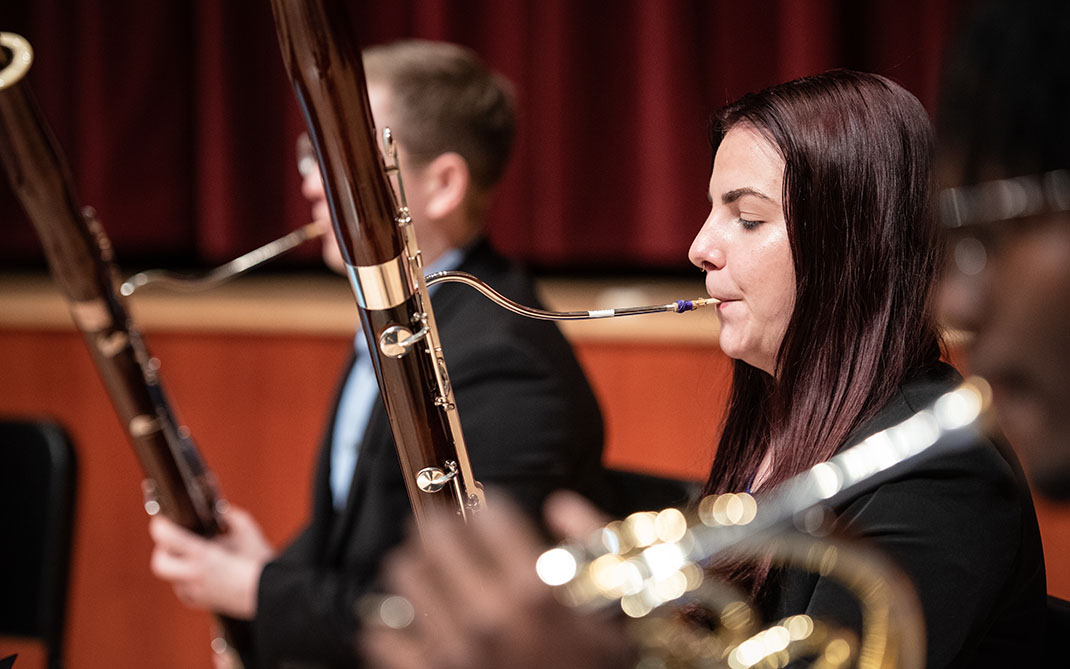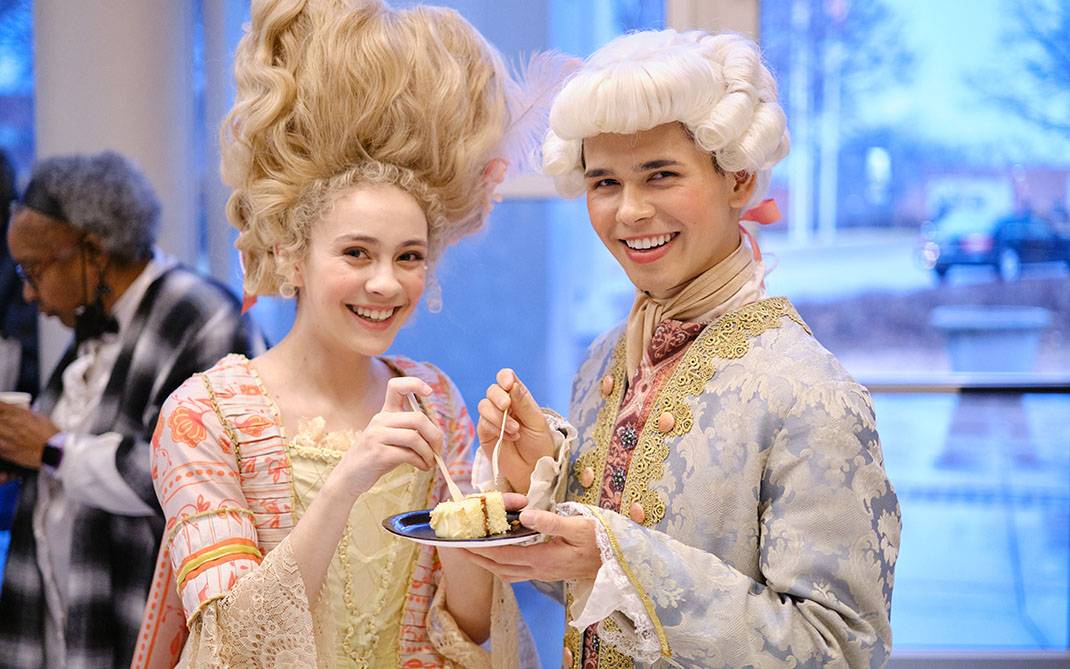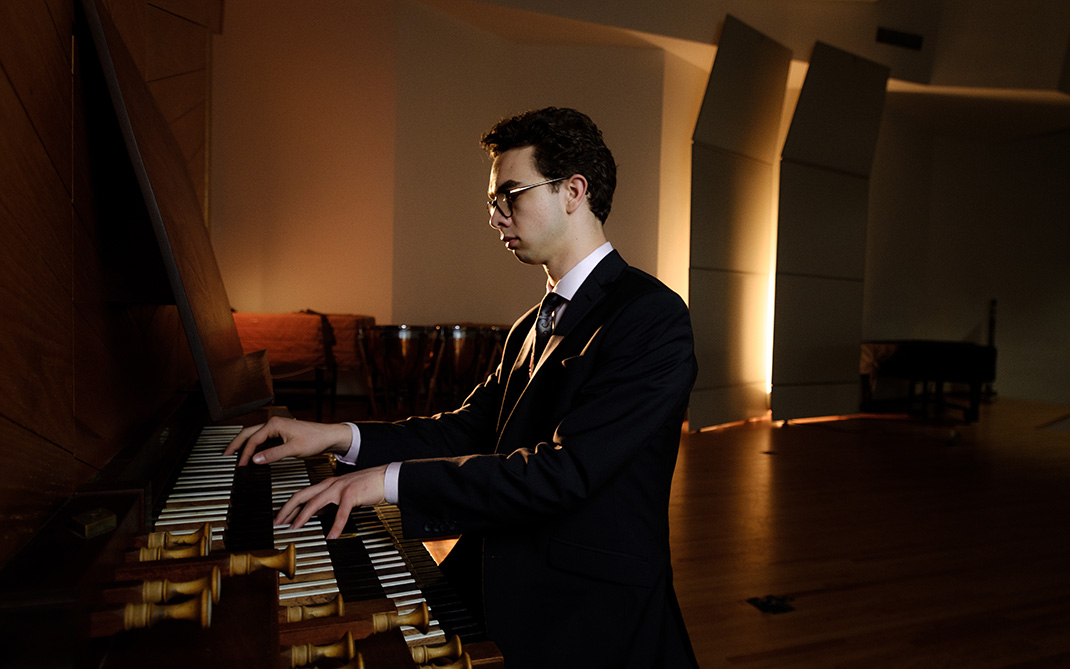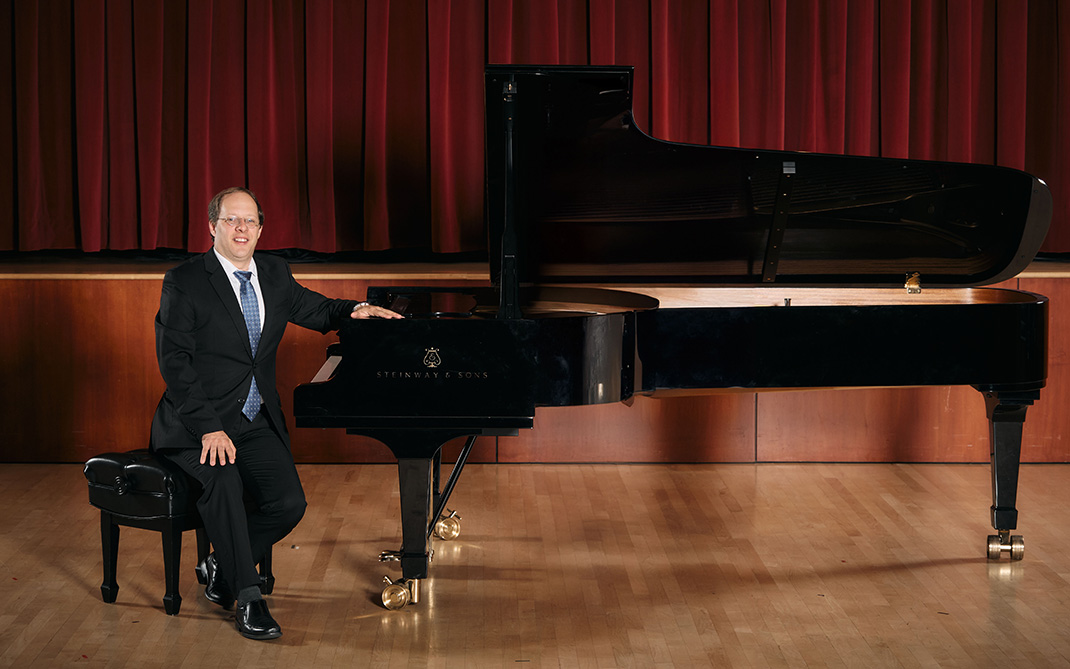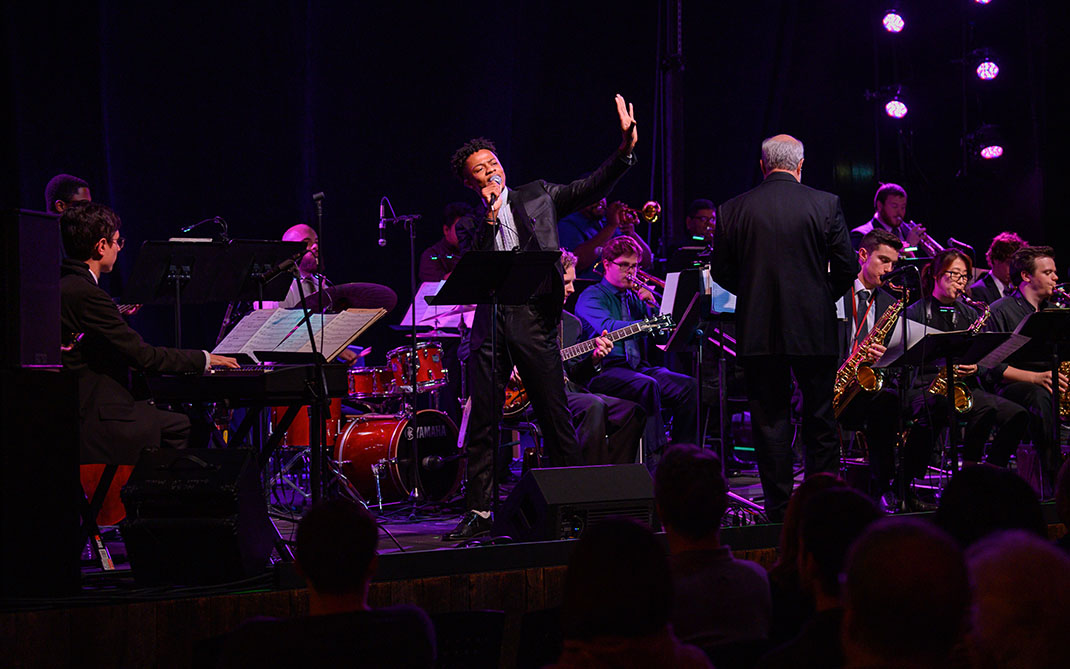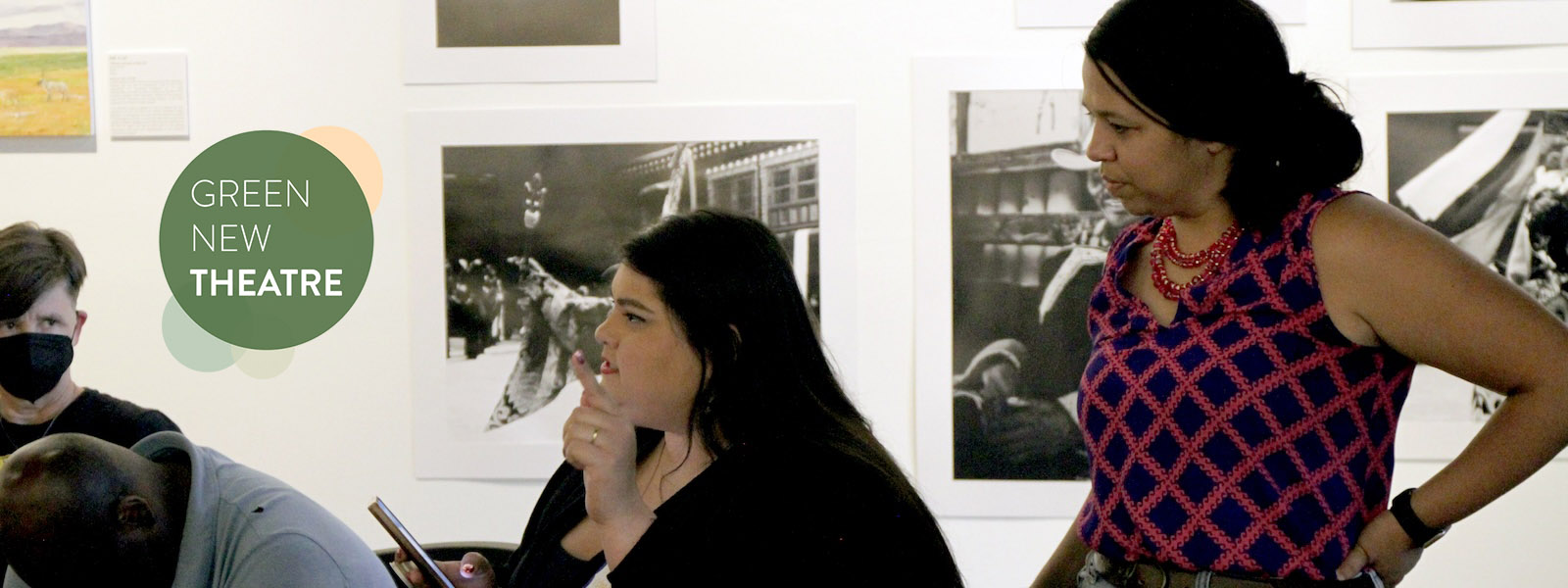Groundwater Arts
Listen to the interview on Apple, Spotify, or your listening platform of choice. Captioned interviews are available on YouTube.
The views and opinions expressed by speakers and presenters in connection with Art Restart are their own, and not an endorsement by the Thomas S. Kenan Institute for the Arts and the UNC School of the Arts. This interview has been edited for length and clarity.
Theater artists Annalisa Dias and Tara Moses are the co-directors of Groundwater Arts, an organization they founded in 2018 — along with Anna Lathrop and Ronee Penoi — to braid together goals that at first might seem disparate: decolonizing the arts-and-culture field and striving for a climate-just future.
Guided and inspired all along by an advisory council as well as a youth council, Groundwater Arts has created countless opportunities — whether through creative projects, consulting or virtual and in-person gatherings — for cultural institutions to learn how they can start dismantling structural inequities that for generations have exacerbated the climate crisis and have primarily harmed communities of color. Groundwater Arts adheres to the principles listed in “Green New Theatre,” a document the co-founders wrote to guide American theaters in responding to the climate crisis.
In this interview, Annalisa and Dias describe the diligence and integrity with which they created and continue to run Groundwater Arts, offering a blueprint for artists and institutions looking to align their practices with justice, sustainability and true collaboration.
Pier Carlo Talenti: I will later ask you about your founding Groundwater Arts, but before I do, I want to make sure I have a basic understanding of the beliefs that undergird the organization, namely that “green” doesn’t not only denote environmental justice, is that right?
Annalisa Dias: Yeah, that’s right.
Pier Carlo: Recently, in light of the environmental disasters we’ve been experiencing, especially the huge super-fires in the West, there’s been a lot of talk about how Indigenous practices of burning once prevented those type of fires. So that’s one way I’m thinking of that connection. But in what other ways are decolonized justice and environmental justice inseparable?
Annalisa: Tara, do you want to go, or you want me to go?
Tara Moses: I can take the decolonized piece if you want to then hit it with the racial.
Annalisa: Sure.
Tara: [She laughs.] What a way to phrase that!
Pier Carlo: That’s good teamwork. That’s awesome.
Tara: The climate crisis did not exist before these global acts of colonization. There is no, “Was it the chicken or the egg?” No, it was quite clear where this came because we did not see these massive disasters until after the global effect of colonization, settler colonialism and also neocolonialism in these communities in which all of the land, water, etc., were made into resources and translated into wealth.
How we see that in action, obviously you have the example of the wildfires on the West Coast, but even in the extreme flooding in the South of the United States. A lot of native plants that have been there since time immemorial have since been removed for these settlements for people to live in, and that has then resulted in higher flood issues. Furthermore, the land itself is not being governed and taken care of by the individuals who have the ecological knowledge, aka the Indigenous peoples of this continent, which has just resulted in people who don’t know how this land works and then just deciding to build things on it.
Pier Carlo: Right, they only know how to extract, not caretake, necessarily.
Tara: Yeah, exactly. There we go. That’s the phrase, extracting not caretaking. This is thousands and thousands of years of knowledge at this point, and it’s like, oh yeah, people are just now speaking about how Indigenous ecological knowledge is what we need to help combat the climate crisis. And it’s like, “Yeah, y’all we done been knew about all of this.” I don’t know, I can keep going on and on. [She laughs.]
Pier Carlo: Thank you. It was a tall order to ask you to just give me the ultra-Cliffs-Notes version. Annalisa, you were going to tackle it from a different angle.
Annalisa: Just to underscore what Tara was sharing is that the climate crisis that we’re currently experiencing, the roots of it are colonial capitalism. That’s another way to say what Tara was sort of getting at.
Then the other side of that is that the impacts of the climate crisis disproportionately affect Black and Brown and Indigenous communities first and worst. For example, with the flooding that’s happening right now because of Hurricane Helene or the many hurricanes along the Gulf Coast, the communities that are most marginalized, that are most intentionally impoverished, are Black and Indigenous communities along the Gulf Coast. Those communities suffer the most from the impacts of the climate crisis.
Pier Carlo: Because the only places they were allowed to live in were floodplains.
Annalisa: Yeah, that’s right. And the environmental-justice movement has been pointing this out for decades.
And the idea is, too, that thanks to things like governmental policies of redlining in various cities ... . I’m calling from Piscataway land in the city of Baltimore that literally invented redlining and piloted it for the rest of the country. What it does is create actual governmental housing policies that restrict where communities can live based on racial lines, and those decades-old policies are still having impacts today.
For example, one of the ways that Baltimore gets rid of its waste is with a giant incinerator, and that giant incinerator was built basically right in the middle of Black communities. So those communities in Baltimore have higher instances of asthma and cancer. I’d love to recommend this book called “The Black Butterfly” by Dr. Lawrence Brown. He’s a public-health researcher at Morgan State University. He’s done some incredible work to show the present-day impacts of historical policies around redlining and the ways in which Black communities, at the neighborhood level, have disproportionately negative health impacts with relation to white communities in Baltimore. He traces it directly back to government policies.
Pier Carlo: What made you and your two other co-founders decide to take this knowledge and use it towards cultural and arts institutions? Was there an instigating moment?
Annalisa: I can take a swing, and then Tara, feel free to jump in if I forget anything. I would say that back in 2017, 2018, all four of us were working in various capacities in the theater and performing-arts field, and we noticed that there was some movement-building and -organizing around decolonization and racial justice. Then, sort of separately, there were groups of people that were doing eco theater or theater about climate change, and we observed [she laughs] that those two groups were not overlapping.
And we were like, “Y’all, this is the same problem.” As we just said, the roots of the climate crisis are colonial capitalism, so how can we talk about decolonization without advocating for a climate-just future? How can we talk about climate change and responses to ecological crisis without acknowledging the justice component of that work? So really it was that we were just moving through the world as artists ourselves, I think, and noticing a gap, and we thought maybe we could help fill that gap.
Tara, would you add anything?
Tara: No, that sounds right to me. I think for me, specifically, at the time of Groundwater’s founding, I was based in Oklahoma and so had a very, very different experience when it comes to people connecting the dots to things. This just seemed like a really great opportunity of, oh, how can we — with the four of us who are operating in different places throughout the country at the time — reach a broader group of individuals to increase the retention of all of this and really kickstart this conversation in many different areas? Especially for my own self, being part of the South.
Pier Carlo: Now, I read “Green New Theatre,” this living document that the four of you created. It lists six principles: community, accountability, publicly transparent budgeting, decolonized leadership practices, sustainable resources, right relationship to land and history and immediate divestment from fossil fuel interests and sponsorships. In terms of your co-leadership style, as you started to put the organization together and figure out how you were going to lead together, did you hew to those principles yourself from those start, or did you have to develop them?
Tara: What is so unique about Groundwater and how we formed — I sing it from the rooftops all the time — is that we spent six very intentional months figuring out, “What is it that Groundwater could be? What are the values that we have as an organization?” Because we had the wonderful opportunity to be like, “OK, cool. These are our values in regard to art and advocacy and social change and what we’re trying to make happen.” And so it was like, “OK, well then now what is the best container to make that happen?” Because there are many, many problems with the nonprofit industrial complex, and from the get-go, we were like, “We don’t want to do this. We don’t want to be a nonprofit.”
Since we took that time, we were able to create, “What are the best financial models for us that made sense? How is it that we are not contributing to colonial capitalism and how we make money? What are the ways in which we can pay it forward, quite literally pay with dollars, to these frontline communities who are the most vulnerable to the climate crisis?” In those six months, it was sort of like, yeah, 100%, these six principles that you see in the “Green New Theatre” are also evident in how we exist and move through as a company.
Pier Carlo: I think that’s kind of revolutionary because … what did you call it? The nonprofit industrial —
Tara: The nonprofit industrial complex.
Pier Carlo: Right. Usually when people get together to form an organization, the go-to is you become a 501(c)(3), but you decided not to. So what is the model you developed?
Annalisa: We formed as an LLC partnership, and then we have a fiscal-sponsorship relationship with Producer Hub, which … shout out to them. They’re amazing. So we are still able to accept grants for some of the work that we do that is technically in the nonprofit world — it’s for the social good — and we accept that through a fiscal sponsor. But Groundwater Arts is not a 501(c)(3), so we are not beholden to a board, and we are not beholden to the same sort of nonprofit governance structures.
Pier Carlo: Tell me why that was so crucial to you from the start.
Annalisa: Tara, I’d be curious to hear what you would have to say about it too, but on one hand, there’s simply the efficiency of being able to make decisions for our own selves about what kinds of projects we wanted to take and what we wanted to do with the money and whatnot.
Then there’s a sort of bigger philosophical gesture, I guess, where we’re not interested in just forming yet another 501(c)(3) that then has to jump through all of the hoops, because basically … . Also just to recommend another book: “The Revolution Will Not Be Funded” by INCITE! Women of Color Against Violence. The non-profit industrial complex is a well-theorized phenomenon, so we didn’t just make that up. Yeah, the whole nonprofit sector is and was founded basically to protect the wealth of the white wealthy upper class and actually to police movements. So that’s a big thing to say. [She laughs.] We were not interested in perpetuating that, if we could avoid that in our small way by just not forming a 501(c)(3).
Tara, would you add anything?
Tara: I think what I’ll also add is with the nature of 501(c)(3), the financial and judicial responsibility falls onto the board of directors. While the four of us are deeply in alignment with each other, the moment that we’re thinking about a board, we are handing over some of that decision-making power and that responsibility to other folks. Even as an LLC, because we believe in community accountability, we have a community advisory board of individuals who keep us in check. It’s a very different structure, having folks deeply embedded in our communities, folks who are elders in these communities, check in with us to provide that community-accountability support rather than individuals whose jobs it is to be like, “Let’s look at the budget. Let’s look at the governance.” We’re able to actually continue to center the values and the work that we’re doing in that way.
And then finally, because there are so many restrictions in federal law on what 501(c)(3)s can and cannot do, especially when it comes to political organizing … . [Laughing] There isn’t anything about trying to combat the climate crisis and whatnot that is going to make the government happy. Thinking of the long term, this is just something we don’t want to mess with. With this freedom of an LLC, we’re not worried about, “Oh my god, can we make these political statements?”
Pier Carlo: In the years you’ve been working with Groundwater Arts, what discoveries have you yourselves made that you did not know before?
Annalisa: I would say that collaboration within the art sector doesn’t have to suck.
[They both laugh.]
Pier Carlo: It sounds like you’re speaking from experience.
Annalisa: Yeah, yeah.
Pier Carlo: So how did collaboration used to suck?
Annalisa: Well, I just worked in so many different contexts where values weren’t actually aligned or people would say things like their values were aligned but then in practice they really weren’t. Or other contexts where because of, I don’t know … whether it was a nonprofit that was beholden to a specific fiscal year cycle or whatever. Or just those cycles of planning where it’s like everything feels urgent all the time and it feels sometimes there’s no way out of it, and then people are under pressure, and they can mistreat each other. We’ve all worked in those kinds of situations.
I distinctly remember multiple times through the height of the beginning of the pandemic where we would be in Groundwater Arts meetings and be like, “Oh, why is this working so well? What are we doing differently?” Because all four of us, at the same time as we were working with Groundwater Arts, we were all doing other full-time or almost full-time independent artistry or full-time jobs in other theater institutions or arts institutions. Anna sort of moved from theater into the design world, and she was having different experiences in design consulting. And every time we would meet up as a Groundwater Arts team, we would be like, “Oh, wow, we all trust each other, and we all know how to communicate. And our values are actually aligned. Isn’t that funny, how much more efficient you can be if your values are actually aligned?” [She laughs.]
Pier Carlo: You brought up the pandemic. Theaters were struggling before the pandemic and certainly are even more so afterwards. The pandemic seemed like an opportunity to either start back where they were beforehand or really press the reset button. Are you hopeful about the state of theater going forward?
Annalisa: Tara?
Tara: [She laughs.] I was over here thinking. I was like, “Is hopeful the word I would use?” Hmmm. I would say I am more excited about the transition and what could be, because through the pandemic, we saw some great devastation of many theaters and programs closing their doors.
I mean, everybody and their mama will tell you that I’m going to be one of the first people who would be like, “Hell, yeah, burn it to the ground. Everything needs to burn.”
[Annalisa laughs.]
I think I am really excited to see some of these systems fall that need to fall. Something that we’ve said as Groundwater all the time is that you can’t build a sturdy house on a rotten foundation. So much of the foundation of a greater American theater is deeply rooted in settler colonialism, is rooted in racism, is rooted in colonial capitalism, and so you can’t ... . Oh my gosh, here I am. I’m a little Bob the Builder myself. You can have the highest quality of drywall, you can hire the best contractors to build your house, but if your foundation is still rotten, that house is going to fall down.
I think that what we’re seeing in real time is so many of these theaters’ foundations can’t support it anymore, and so these buildings, they’re falling down, literally and metaphorically. I’m very excited to see, how do we rebuild? Where are the theaters who have been built on these strong foundations? How are they being able to set up to succeed? I’m excited about all of the individuals who have now become building inspectors and can see cracks in the foundation for the first time. I think we’re in a massive time of change, and I’m really excited to see what that is. And also with that, embracing that it’s probably not going to look the same, and if that’s the case, maybe it shouldn’t have existed in the first place.
Annalisa: [Laughing] You really carried that metaphor the whole way through, didn’t you?
Tara: You know, I love Bob the Builder.
Pier Carlo: If a metaphor works, you got to flog it.
Let’s say a young theater artist were listening to this and she had a very strong vision of what kind of theater she wants to make and wants to create a company but do it in a way that is likely to succeed in this 21st century, that follows the green theater’s principles, what is the first thing you would counsel her to do?
Annalisa: I think I would want to have a conversation about, do we really need another company? Or what’s the goal? I don’t know. It just never occurs to me to want to start a company first. I’m like, “What are we actually working on? What are we trying to do? And is a company the best vehicle for that work?” Yeah, I think that’s where I would start.
Pier Carlo: I see. That’s so interesting, because it even shows my block too, that a company is what you make when you want to create a lot of projects. But what are alternative ways of thinking?
Annalisa: Well, I mean, if there are projects that someone wants to make, do you need a company for that? Or can you create partnerships or, I don’t know, get an independent producer on board? Can you marshal resources in a different way than just create another company in the world that then has to do all of the things that a company does? If the answer is yes, if the answer is, “Actually, yes, we do need another company, and here are the reasons why … .”
I mean, we decided to create Groundwork Arts as a company. We formed it as an LLC, as we talked about, but I don’t know that that was a foregone conclusion.
Tara: We also say this a lot too, especially if we’re talking about the regional theater system and how that’s like settler colonialism in action. I always wonder … . Individuals who think, “Oh, let’s start a company,” my question back to them is, “Who asked you? Who in this community that you’re a part of asked for you to create another company?” If the answer is, “Well, nobody asked me, I just want to do it,” then I’m like, “OK, well …”
Pier Carlo: Right. “Is it about your ego or serving the community?”
Tara: Right, right. Because we have plenty of these theaters that started as a vanity project, and we’re seeing them now fall down because their foundation’s rotten. It’s also an opportunity to be like, “Are there individuals in your community whom you can align with to create art and support them while you’re also moving through what is it that you feel called to do?” I say all the time, “Did the Black and Native people ask you to come into their neighborhood and create a theater and then get all this critical success and then price them out of their own neighborhoods? Did they ask you to do that? No? Then why are we going to do it again?”
October 21, 2024
